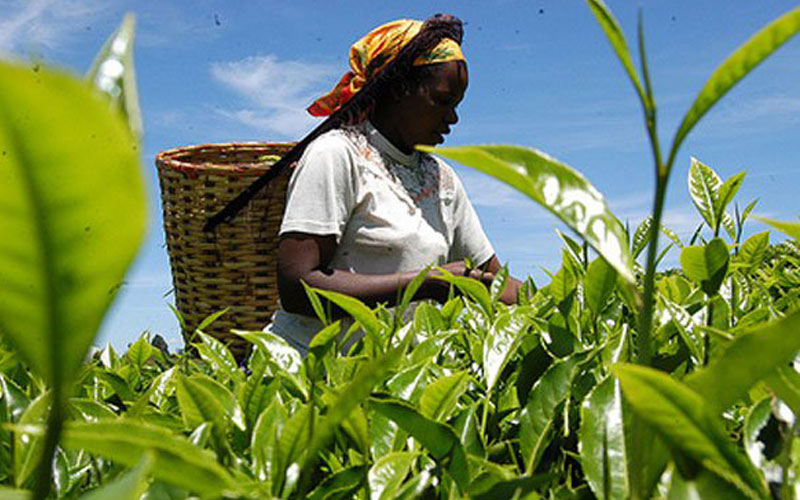Small-scale tea farmers stare at Sh754m loss over new tax

Steve Umidha @UmidhaSteve
Smallholder tea farmers under Kenya Tea Development Agency (KTDA) will lose over Sh754 million every year to the minimum tax, which came to force on January 1.
It is expected that the move will to eat into smallholder tea farmers’ income and reduce their take-home package earned from their green leaf sales.
The Sh754 million is higher by Sh20 million the dividend the tea agency recently declared to its shareholders – the 54 factory companies and smallholder farmers who own them in its 2019/2020 Financial Year.
The tax, introduced through the Finance Act 2020, is a base income tax payable by all persons regardless of whether or not they make a profit.
It is aimed at bringing more enterprises into the tax bracket despite their financial status.
Further, entities will be forced to remit the minimum tax if it is higher than instalment tax – which is payable by companies with no tax losses.
The implication of this to KTDA-managed tea factories, using the last financial year’s audited accounts, is that they will be, on average, paying over Sh62.8 million each month, in addition to the over 40 taxes and levies they are already remitting to various government agencies.
KTDA-managed factories recorded a Sh79.02 billion turnover for the year which ended June 30, 2020 and would need to remit over Sh799 million with the new tax regime.
Ngere Tea Factory in Murang’a County would remit the highest amount at Sh21.8 million annually, while Litein Tea Factory in Kericho would be the second-highest remitter at Sh19.6 million.
Chebut, Makomboki and Momul Tea Factories would all be paying over Sh18 million annually while Kimunye and Mununga Tea Factories would be remitting over Sh17 million each.
Only 16 of the 69 processing factories that are managed by KTDA would be paying less than Sh10 million annually.
“With the tea sub-sector focus being the enhancement of the socio-economic welfare of the smallholder tea farmer, the new tax will erode farmers’ earnings and could therefore prove to be counterproductive to the cause.
Alfred Njagi, KTDA Management Services Managing Director said that consideration should be made to exempt smallholder tea farmers from this tax to protect their earnings, in line with the government directive of putting more money to farmers’ pockets.
Last year, eight business lobby groups called for abolishment of the one per cent minimum tax.
Deterring startups
Led by Kenya Association of Manufacturers (KAM), they said the new tax will have an adverse effect on businesses, including deterring startups, increasing costs to consumers and increase cash flow constraints, consequently, pushing struggling entities to a premature close.
“This will lead to loss of jobs and take the economy into a downward spiral of contraction,”KAM chairman Mucai Kunyiha said.
They vowed to continue more rigorous engagement with the government in order to seek a better solution for local businesses, which are already hard hit by the Covid-19 pandemic.
Institute of Economic Affairs CEO Kwame Owino, said taxation is a critical function in building sustainable and progressive economies. He said the timing to impose such taxes on businesses is ill-advised.
“This unpredictability will overburden businesses and increase costs. We need to discipline public spending,’’ he said.
Institute of Certified Public Accountants of Kenya chair Rose Mwaura said the “unfavourable” tax policies not only discourage investment and growth, but they are also a disincentive to exporters, which in the long run dilutes competitiveness.
“The government does not generate revenue. It comes from businesses and individuals.
Therefore, for any economy to grow, the government must make it conducive for business to operate effectively,’’ she added.














